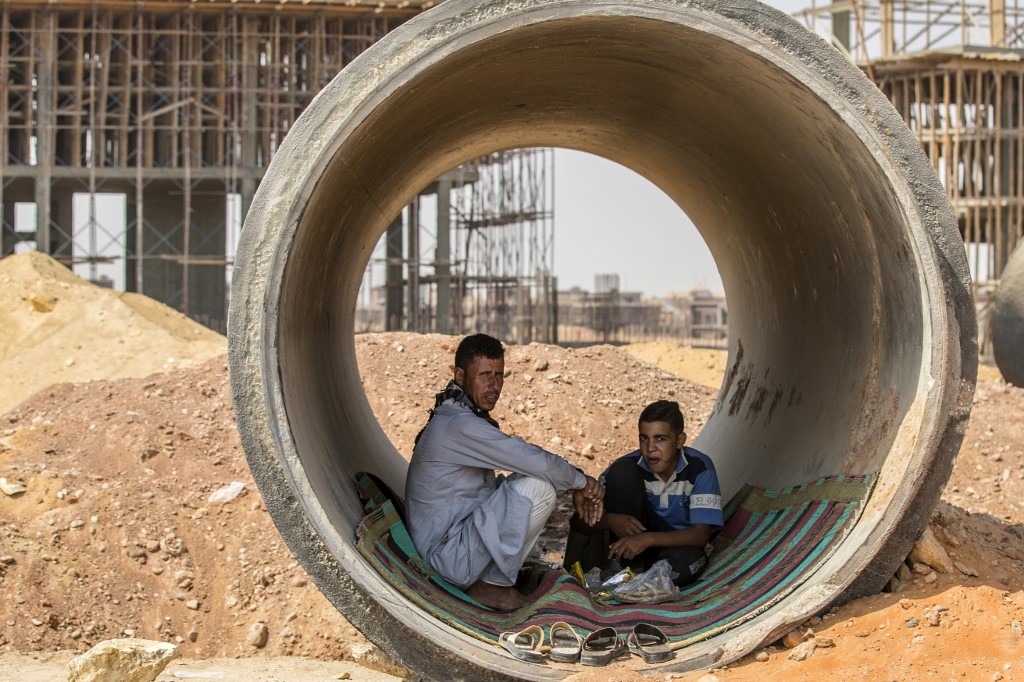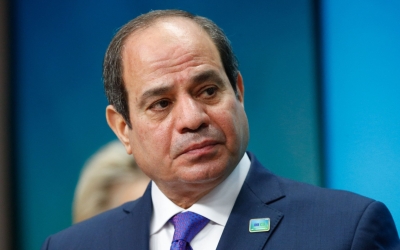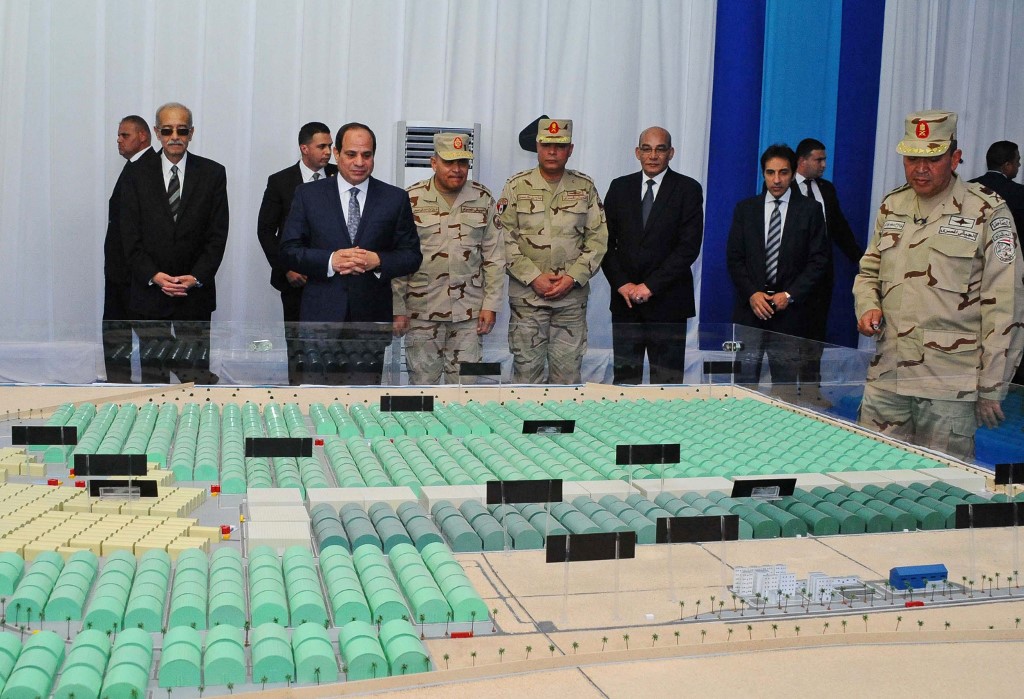Egypt plans to sell off state assets to boost private sector but doubts remain

A proposal by the Egyptian government to double the current share of the private sector in the economy has been met with scepticism as the country reels from the knock-on effects of the Russia-Ukraine war.
Called the "State Ownership Policy," the document unveiled by the government last month is Cairo's latest attempt to bring confidence back to the local investment climate and convince investors to pour billions of dollars into Egypt.
The government says the end goal of the policy is to see the private sector in control of over 65 percent of the economy, instead of 30 percent now.
'The document aims primarily to rein in the participation of the government and the companies owned by the armed forces in economic activities'
- Ekram Badr Eddine, political scientist
It has prepared assets and projects worth $40bn that will be either sold to the private sector or offered for partnership in the coming three years.
It contains pledges by the government to cede control over some sectors of the economy to the private sector, including transport, communications, electricity, real estate, and the sewage and drinking water sectors.
New MEE newsletter: Jerusalem Dispatch
Sign up to get the latest insights and analysis on Israel-Palestine, alongside Turkey Unpacked and other MEE newsletters
The government will do this by selling some assets and allowing the private sector to participate in the management of others. For example, the private sector will be allowed to design, build and operate electricity and sewage networks for the first time.
Egypt has already applied for a new loan from the International Monetary Fund, amid reports that the new document is dictated by the international lender, which wants to see the private sector enjoying fair competition in the local market.
The document also comes in the face of repeated criticism of the growing military control of the economy since Abdel Fattah el-Sisi led a coup that brought him to power in 2013.
The Egyptian army owns a sizeable portion of the economy, operating a huge network of institutions and projects, from farmland to food factories, mineral water companies, poultry farms, petrol stations and fish farms.
The Engineering Authority, a section of the military establishment, now oversees infrastructure and development projects to the value of tens of billions of dollars, including roads, land reclamation projects, water treatment plants, electricity plants and new cities.
The authority commissions work in these projects to local and foreign contractors, negotiates prices and is responsible for receiving these projects after completion.
The document raises questions about whether the plans will cause the army to loosen its grip on the economy.
"The document aims primarily to rein in the participation of the government and the companies owned by the armed forces in economic activities," Ikram Badr-Eddine, a professor of political science at Cairo University, told MEE. "This is important for addressing structural imbalances in the economy that manifest themselves in monopolies and unfair competition."
The army's economic empire is a no-go area for local media and the state treasury. Revenues from army-owned projects go into the budget of the army only and are not subject to any type of oversight.
In contrast, revenues from state-owned assets go into the national treasury, are subject to oversight by parliament and other supervisory authorities, and are used in spending on development projects.
The Egyptian army is believed to control between 20 percent and 50 percent of the economy, although President Sisi has always scoffed at reports in this regard, estimating the army's share in the economy at between 1.5 and 2 percent.
In April this year, the Egyptian president announced plans for listing the shares of some of the companies owned by the army on the stock exchange and allowing members of the public to own these shares.
Doubts
Around 50 percent of Egypt's gross domestic product is made up of assets owned by the Egyptian state, according to government estimates. This ownership is comparatively inflated, if set against state ownership in other countries.
The presence of these vast assets gives Egyptian authorities enough stock to use in bringing in revenues and wooing the private sector, the government says.
However, away from government offices, the view is that Egypt needs more than just ink on paper to attract investments.
"I believe the government is badly in need of reaching real understandings with the business community," independent economist Abdel Nabi Abdel Muttalib told Middle East Eye. "The private sector cannot invest without assurances that it would be free and secure."
Another economic expert called for the confidence-building measures by the government to convince investors that their investments would be safe in Egypt.
"Some businessmen went to jail in the recent period, even as no specific charges were levelled against them," independent economist Mamdouh al-Wali told MEE. "This is why a large number of local investors have been moving their investments outside the country."
Amnesty International has said that Egyptian businessman Safwan Thabet and his son Seif Thabet, the owners of the Juhayna dairy company, are being held in solitary confinement at Cairo's notorious Scorpion Prison in conditions that amount to torture, due to their refusal to give up their shares in the firm to a military-owned business.
Al-Wali noted that the private sector faces unfair competition in the Egyptian market, especially with the Egyptian army maintaining a huge business empire and competing with the private sector.
"Whereas the private sector is crippled by a long list of taxes and customs, army companies have no such burdens," al-Wali said. "Army companies get plots of land and licences for their projects very easily, while the private sector has to wait for ages to get these things."
'Whereas the private sector is crippled by a long list of taxes and customs, army companies have no such burdens'
- Mamdouh el-Wali, economic expert
Al-Wali said that laws are "the easiest thing" to do for governments. "More difficult still, however, are measures on the ground that make a difference."
The government has already started discussions over the document with different categories of people, including members of the business community and economists, before officially launching the document later this year.
It says its own work teams spent six months to draft the document, having thoroughly studied similar documents that were produced in other countries.
The government got a taste of public views about the new policy paper during a discussion on it on 13 June hosted by the prime minister and attended by a large number of economists, investors and former government officials.
One of the participants in the discussion pointed to the need for radical legislative changes and new tax and customs policies.
Another participant complained against "unfair" tax policies. "Apart from taxes, litigation is very slow in our country, and investors have to address more than one agency to get approvals for the same project," he said.
Another expressed concern over the prospects of the private sector, with the government being a main player in the market.
"The government should not compete with the private sector, but leave the economic stage for this sector altogether," a third said.
Uncontrolled sale of public assets
There is also concern among the members of the public that the new document will open the door for an unfettered selling of public assets and properties.
This trend has already started materialising with the government selling important assets to other Arab countries, including petrochemical companies, banks and other projects in its bid to bring in money that can prop up foreign currency reserves.
The government says it will try to manage its own assets in a way that serves national economic interests.
"We have diverse assets and the government may find it appropriate to sell some of these assets to use returns in buying better assets," Cabinet spokesman Nader Saad said in mid-June. "We only want to maximise returns from the assets."
The selling of public assets to the private sector has a bad reputation in Egypt, especially with this process associated with the corruption that tainted the national privatisation programme in the 1990s.
A huge number of state-owned companies and factories were sold under late president Hosni Mubarak for prices far less than their market value, which caused public anger.
There are also fears that returns from the potential sale of public assets would be used in repaying Egypt's accumulating debts.
However, people close to the government say these revenues would be used in improving national economic conditions and targeting additional funds to important sectors, such as health and education.
"Some of the returns would also be used in propping up foreign currency reserves in the central bank," Mahmoud Sami, a member of the Economic Affairs Committee in the Egyptian Senate, told MEE. "This is a good document, but its implementation is an important issue."
Ukraine war crisis
Underlying the launch of the new policy paper are the effects the war on Ukraine is having on the Egyptian economy.
"The post-Ukraine war world will be totally different from the one before it," Egyptian Prime Minister Mustafa Madbouli declared last month.
Although the economy was already struggling, Egypt has been hit hard by the war, which has compounded the effects of Covid-19 on the economy of the populous Arab country.
Apart from losing millions of tourists who used to come from Russia and Ukraine, bringing in billions of dollars to the national treasury every year, the war is forcing Egypt to pay more for its imports.
The world's largest importer of wheat, Egypt is having to pay billions of dollars in additional funds for inflated prices of wheat on global markets.
'The government is badly in need of adopting strict austerity measures and working hard to attract foreign investments to make up for losses caused by the war'
- Hany Tawfik, economist
It is doing the same in the case of all other commodities, including some that are basic to the day-to-day life of Egyptian citizens.
The war also caused the flight of billions of dollars in foreign assets, exposing the vulnerabilities of developing countries in the face of developed ones, especially when the latter raise interest rates.
Nevertheless, Egypt is now a major gas producer, and is benefiting from growing demand for energy, with Russia cutting off gas supplies to some European countries and Europe working to reduce dependence on Russian gas.
But this is doing nothing to alleviate the suffering of tens of millions of people who have already started feeling the heat from the war, including having to pay more for their basic needs, especially food, and failing to fulfil some needs because of runaway prices.
"Egypt is one of the countries most affected by the war in Ukraine, given the war-induced sharp rise in the cost of imports, especially food," leading economist Hany Tawfik told MEE.
"The government is badly in need of adopting strict austerity measures and working hard to attract foreign investments to make up for losses caused by the war."
Middle East Eye delivers independent and unrivalled coverage and analysis of the Middle East, North Africa and beyond. To learn more about republishing this content and the associated fees, please fill out this form. More about MEE can be found here.








